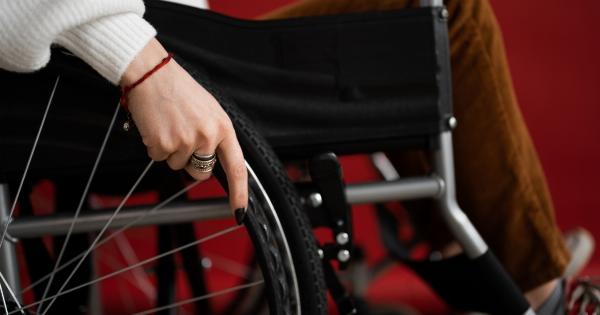Illicit mental health units have gained attention in recent years due to their controversial nature and unethical practices.
These underground facilities operate outside the mainstream healthcare system, providing secretive and often dangerous treatments to vulnerable individuals seeking help for their mental health issues. In this article, we will delve deep into the world of illicit mental health units, uncovering the truth behind their existence and shedding light on the risks involved.
What are Illicit Mental Health Units?
Illicit mental health units are unregulated facilities that claim to offer treatment for various mental health conditions. Often operating in secret or hidden locations, these units are not licensed or monitored by any authority.
They operate outside the boundaries of the law, utilizing questionable therapeutic approaches and experimental treatments that lack scientific evidence or ethical guidelines.
The Dangers and Risks
Engaging with illicit mental health units can have severe consequences for individuals seeking help. The lack of professional oversight and regulation exposes patients to various risks, including:.
- Physical Harm: Unqualified staff and untested treatments can lead to physical injuries or worsen existing health conditions.
- Psychological Abuse: Patients in illicit units are often subjected to verbal, emotional, or even physical abuse, exacerbating their mental health issues.
- Lack of Informed Consent: Patients are commonly deceived or coerced into treatments without proper information or understanding of the potential risks involved.
- Financial Exploitation: Illicit units often charge exorbitant fees for their services, taking advantage of individuals in vulnerable positions.
- Limitation of Legal Recourse: Without proper regulation, victims of illicit units face difficulties in seeking justice or legal action against their abusers.
The Irresponsible Therapeutic Approaches
Illicit mental health units often employ unproven or dangerous therapeutic approaches. These approaches lack the scientific evidence required to support their effectiveness and safety. Some common irresponsible practices found in these units include:.
- Isolation: Patients may be unnecessarily isolated from the outside world and deprived of social interaction, leading to further deterioration of their mental health.
- Extreme Physical Restraints: Unauthorized and excessive use of physical restraints can cause physical and psychological trauma to patients.
- Forced Medication: Patients may be forcefully administered medications without their consent or proper medical guidance, leading to adverse side effects.
- Unqualified Staff: Lack of trained professionals in illicit units means patients aren’t receiving appropriate care and support from qualified mental health providers.
- Unregulated Experimental Treatments: Illicit units often experiment with untested treatment modalities that may harm patients without any potential benefit.
Victims’ Stories
The stories of those who have experienced illicit mental health units are harrowing and highlight the urgent need for action. Amy, a survivor of an illicit unit, shared her ordeal:.
“I thought I was seeking help for my anxiety and depression, but I ended up in an underground facility where my basic human rights were violated. I was subjected to cruel treatments and abuse that worsened my mental state.
It took me years to recover from the trauma I experienced.”.
Amy’s story is not an isolated incident. Numerous victims have come forward, sharing their experiences of mistreatment, exploitation, and neglect within illicit mental health units.
Efforts to Combat Illicit Mental Health Units
Recognizing the seriousness of the issue, various organizations and authorities are taking steps to combat illicit mental health units. These actions include:.
- Increased Regulation: Governments and mental health regulatory bodies are working to strengthen regulations and oversight to identify and shut down illicit units.
- Raising Awareness: Educating the public about the risks and dangers associated with illicit units can help individuals make informed choices and avoid their services.
- Support for Victims: Providing support systems and resources for victims, including counseling and legal assistance, can aid in their recovery and pursuit of justice.
- Collaboration with Legal Authorities: Sharing information and cooperating with law enforcement agencies can help establish criminal charges against operators of illicit units.
The Importance of Mental Health Advocacy
Amidst the fight against illicit mental health units, it is crucial to emphasize the importance of mental health advocacy.
By promoting awareness, ensuring access to quality mental healthcare, and eliminating stigma, we can reduce the vulnerability of individuals seeking help and discourage their engagement with illicit units.
Conclusion
Uncovering the truth behind illicit mental health units reveals a dark side of the mental health industry where exploitation and harmful practices prevail.
By exposing these units and advocating for stricter regulations, we can protect vulnerable individuals from falling prey to their manipulative tactics. It is essential to support victims, raise awareness, and foster an environment that prioritizes ethical and evidence-based mental health care.





























